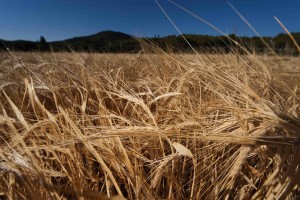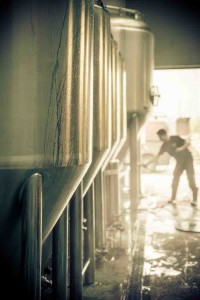Craft brewing: 0.5 million hectolitres by 2019
Employment in craft brewing has more than quadrupled since 2011 with direct employment levels now standing at 259 on a Full Time Equivalent basis and this could reach 700 FTEs by 2019.
These are among the findings of a recent report from the Independent Craft Brewers of Ireland which states that between 2011 and 2014 microbrewery production output rose more than threefold to 86,000 hectolitres, up 71% on the 2013 figure of 49,000 hectolitres. According to the ICBI report output is expected to increase again by 70% this year to 145,000 hectolitres and again by 64% in 2016.
Such encouraging figures make it “highly likely” that the output of the sector will exceed 500,000 hectolitres within four years.
The new report entitled Craft Beer and Microbreweries in Ireland points out that there were just nine craft breweries here in back in 2012. Now there are 63 microbreweries operating of which 48 are “production microbreweries” and 15 are “contracting companies”.
The author of the report, Bernard Feeney explains to Drinks Industry Ireland, “Those breweries considered ‘production’ are the ones that brew the product on-site themselves whereas ‘contract’ are those that may either contract out production while they establish their own brewing plant or those who never intend to produce their own beer but want to produce their own brews via another brewery and these contract breweries are never going to change. This is typical of craft breweries around the world”.
Here in Ireland, the number of production microbreweries has increased by 50% from 32 last year.
The report explains that some microbreweries in the process of establishing their own brewing plant go through an initial contracting-out phase before commencing production in their own right.
Market share
It’s estimated that as many as 22 new production microbreweries commenced production in 2014.
The report indicates that Irish craft beer’s market share of the total beer consumption market is likely to rise from 1.4% in 2014 to 2.3% in 2015 and 3.4% in 2016 with turnovers estimated at €23 million in 2014 and projected to reach €39.6 million for 2015.
In its own recently-published annual report,
the Irish Brewers Association points out that the
craft beer sector continues to be a success story,
making up an estimated 1.2% of the market,
with 40% of microbreweries exporting.
Exports of craft
This report states that nearly 25% of craft beer production was exported in 2014, approaching double that of 2013. This craft beer is exported to some 25 countries at present.
Indigenous sourcing
The microbrewing industry sources over half of its brewing ingredients by value domestically, states the report, “For example, in 2014, almost 90% of microbreweries sourced supplies of malted barley from within the Republic of Ireland, typically amounting to 80% to 90% of all their malted barley inputs”.
Distribution is another source of local spin-off activity too.
In 2014 “41% of the output of the sector was channelled through wholesalers/distributors. Thus, there are significant downstream benefits for the agricultural and other sectors in Ireland.
“As well as employing 259 FTEs directly, indirect employment was estimated at 260 persons in 2015. This means that every person employed in microbrewing is matched by another in the wider economy that supplies the industry.”
There are microbreweries in operation in 21 of the 26 counties with four each in Dublin, Kerry and Galway and nine in County Cork.
Excise on craft
The report estimates that microbreweries will have paid the Revenue Commissioners some €3.4m in excise duties in respect of 2014 production, rising to €5.4m in 2015.
In addition to the above, the wages that microbreweries pay out give rise to income tax and PRSI payments to the Exchequer.
“The microbrewing industry is expected to generate over €2.6 million in income tax and PRSI receipts for the Exchequer in 2015,” points out the report, “This rises to €6.7m when indirect and induced tax and PRSI revenues are taken into account.
“The tax and PRSI revenues arising from the microbrewery industry at 2015 production levels at €6.7m exceeds the expected excise tax rebate in respect of 2015 production.”
Distribution
On average, 41% of microbreweries use wholesalers/distributors to channel their product to market.
14% use their own pubs, hotels or restaurants to reach the consumer while 32% sell through other pubs, hotels or restaurants and off-trade outlets are used by 12% with 1% ascribed to ‘other’ (see pie chart).
Regulatory restrictions
The regulatory issue most commonly raised by the craft brewing industry is that relating to restrictions on the sale of beer to brewery visitors. The report finds this to be a particular concern among the smaller breweries who face marketing and distribution challenges.
“There would be benefits to the wider economy from relaxing current restrictions as there is demand from both indigenous and foreign tourists for a craft beer experience at local microbreweries,” states the report, adding that other marketing issues of concern to microbrewers include their capacity to sell their products at farmers’ and other local markets as well as online.
Rebate turned into relief on craft…
At present, microbreweries benefit from an excise tax rebate of 50%.
“While this is regarded as vital to the future of microbrewing, the fact that the current tax concession for microbreweries is on a rebate basis creates cashflow problems for all breweries,” according to the report.
As a result microbrewers were delighted when the Minister for Finance ruled that the excise duty rate would simply be cut by 50% in the recent Budget.
… and raise the roof
Budget 2015 also raised the ceiling from 20,000 hectolitres to 30,000 hectolitres below which microbreweries could benefit from the 50% tax rate.
“However, the headroom that this created was relatively small,” suggests the report.
With an increasing number of microbreweries engaged in substantial expansion of capacity, the Independent Craft Brewers of Ireland ask that consideration be given to the introduction of the EU ceiling of 200,000 hectolitres with a tapered reduction in the rebate rate up to that ceiling.
This is the second study of craft brewing prepared on behalf of the ICBI and follows the initial one in 2014.










